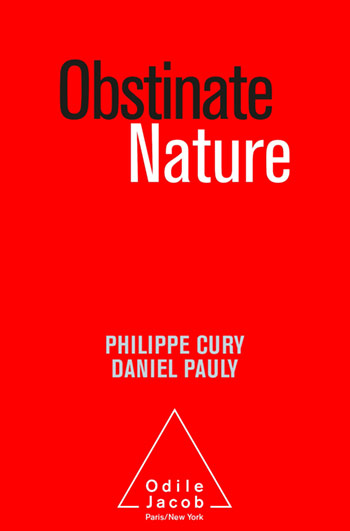
The Sea Around Us Principal Investigator, Daniel Pauly, joined forces with Philippe Cury, research director at the French National Research Institute for Sustainable Development, to publish Obstinate Nature, an updated translation of their 2014 book Mange tes méduses: Reconcilier les cycles de la vie et la flèche du temps.
The 224-page volume delves into some of the behaviors and mechanisms Homo sapiens has used to override the slow and cyclical order of nature in its ceaseless pursuit of faster everything: population growth, territorial expansion, food cultivation, and technological development.
Through encounters with remarkable animals, such as sea turtles, sharks and jellyfish, and stories about exploitative practices like overfishing and institutionalized animal cruelty, Obstinate Nature shows in personably philosophical language just how steep a price the natural world is paying for humans’ follies and excesses, and how the exploding population of this single primate species “may have doomed its civilization and much of nature in an ecological blink of an eye,” as Paul E. Ehrlich writes in the foreword.
The book also considers what the future holds if we fail to embrace and respect the rest of life on Earth. More precisely, it contemplates humanity’s chances to pass the true test of a sustainable future by reconciling its perpetual thirst for linear acceleration with the painstaking natural cycles that allowed us to exist in the first place.
“A system is viable only if it combines speed and slowness,” Cury and Pauly write. “Nature’s cycles tell us that viability requires a combination of these dynamics—fast and slow, innovation and inertia.”
Obstinate Nature is a portrait of unchecked and longstanding human arrogance, and an exhortation for humans to find their place within nature, not over it, before the clock runs out.
This publication is available as an e-book and in hard copy from Odile Jacob.

